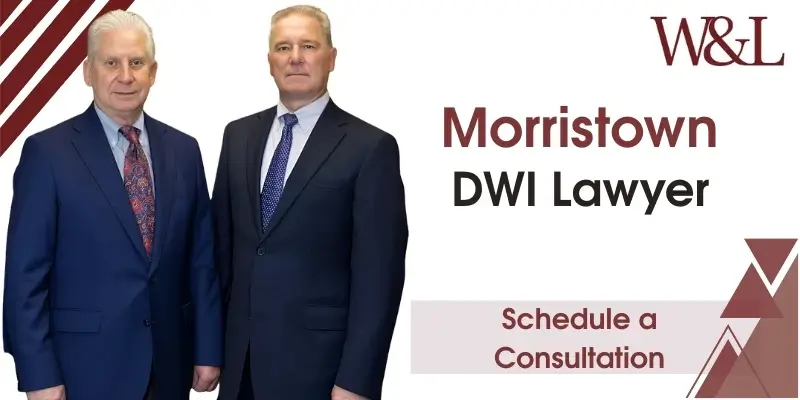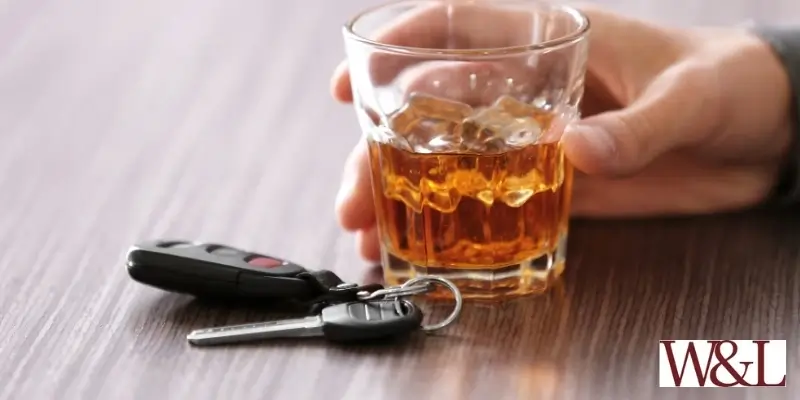call us today (908) 704-9200
call us today (908) 704-9200

With its historical significance, lively downtown atmosphere, and entrepreneurial appeal, Morristown is a great place to live, work, and play in New Jersey. It can be hard to resist the tranquil country roads and picturesque views at Lewis Morris and Loantaka Brook Reservation. Legal problems shouldn’t prevent you from enjoying everything Morristown has to offer. A Morristown DWI lawyer can provide advice and guidance during a challenging time.
call us today(908) 704-9200

When you hire a DWI lawyer at Wronko & Loewen, you get over 170 years of combined experience. We’ve helped hundreds of New Jersey residents since the firm’s establishment in 1994. Due to our extensive knowledge of the New Jersey legal system, Attorney Wronko has been named a New Jersey Super Lawyer every year since 2006. As an experienced Morristown criminal defense lawyer, he is dedicated to protecting your rights. Whether through negotiation or litigation, we want to put our knowledge to work representing your interests.
Information gathered by SafeHome shows the prevalence of drunk driving in the United States. In 2024, officers arrested 804,926 drivers suspected of driving under the influence, which accounted for 11% of all traffic arrests. In New Jersey, there were:
During 2023, 12,429 Americans were killed in alcohol-related traffic accidents. In New Jersey, there were 606 total traffic fatalities, 142 alcohol-related traffic fatalities, and 23% of all traffic fatalities were alcohol-related.
In New Jersey, DWI is defined in two ways: 1. Operating a motor vehicle while under the influence of intoxicating liquor, narcotics, or another habit-forming drug; and 2. Operating a motor vehicle with a blood alcohol concentration (BAC) over 0.08%.
The DWI conviction penalties can be severe. In addition to the Intoxicated Driver Resource Center (IDRC) mandated program, these penalties include:
In addition to the listed penalties, first-time offenders may be ordered to install interlock devices on their vehicles for six months to one year. Second-time offenders are required to install interlock devices for one to three years or have their registration and plates revoked for two years. Third and subsequent offenses require the installation of an interlock device for one to three years or have their registration and plates revoked for 10 years.
In addition to fines and the cost of the ignition interlock device, there are several other monetary fees and surcharges that must be paid after a DWI conviction in Morristown. These fees include:
Several factors affect the cost to hire a DWI lawyer in New Jersey. The complexity of your case and the seriousness of the charges can affect the time necessary to work on your case. A second, or subsequent offense, may also increase the complexity of the case. Some DWI attorneys charge a flat fee for their services, while others charge an hourly rate. You may also be required to pay a retainer fee.
No, it is not possible to plea bargain for lesser charges in a DWI case in New Jersey. Plea bargaining is a tool used in criminal cases to allow a defendant to be charged with a lesser charge. Plea bargaining a DWI to a lesser charge is not allowed, but it may be possible to petition the court for lower penalties. Although some of the penalties are mandatory, others are at the discretion of the judge and can be reduced.
Yes, it is worth it to hire a DWI lawyer for a DWI case in New Jersey. An experienced DWI attorney can help identify possible defense strategies, navigate the complicated legal process, and attempt to minimize potential penalties. The short-term penalties for a DWI conviction can be costly and disruptive to your life. Long-term penalties can affect the type of jobs you qualify for and your ability to own and operate a passenger vehicle.
To get a DWI dismissed in New Jersey, you have to challenge the prosecution’s case against you. With the help of a skilled DWI attorney, there are several strategies for getting a case dismissed. You may file a motion to suppress evidence obtained illegally, demonstrate that the prosecution lacks sufficient evidence to prove beyond a reasonable doubt that you committed a DWI, or that you successfully completed one of the diversion programs offered in New Jersey.
No, you cannot refuse a chemical test in New Jersey because of implied consent laws. Under these laws, by driving on a public road, you give consent to the use of chemical testing to determine levels of alcohol, narcotics, hallucinogens, and other drugs that may be in your system. However, officers have to have reasonable grounds to require the chemical testing. The test cannot be administered forcibly, but there are penalties for refusing the test.
Having a DWI charge on your record can have long-lasting consequences. Don’t try to navigate the criminal court process alone. An experienced attorney at Wronko & Loewen understands New Jersey DWI laws and can help you through the often-complicated process. Contact our office today for a confidential consultation.
As a firm, Wronko & Loewen are committed to providing quality service based on extensive experience in New Jersey’s legal system.
call us today(908) 704-9200
Fields Marked With An “*” Are Required